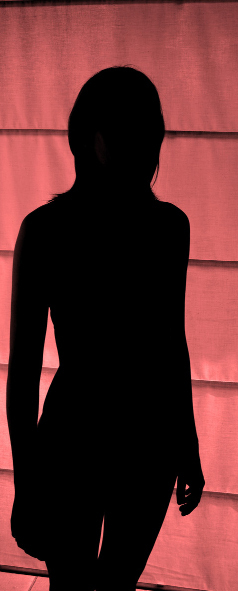OVER 140 women are selling sex services in Northside areas, according to advertisements displayed last week on one of Ireland’s most prominent
‘escort’ websites.
The services being offered at prices of between
?¬60 to
?¬150 per half hour are available at a number of apartment complexes and certain hotel rooms right across the Northside.
Almost half of the 142 Northside based women advertising on the website last week were operating in Dublin 1, close to the city centre. But many were working in suburban areas with 27 advertising in Dublin 9 alone.
A further 32 were based in Dublin 7 while Dublin 15 had 12 women offering a variety of services.
Dublin 3 had just three women advertising and there was none at all in Dublin 11, 5, 17 and 13.
The adverts on the website say the women are charging
‘for their time and companionship only’, but a full
‘menu’ of sex services provided is listed on the women’s profiles.
The profiles also state that aside from time and companionship, anything that occurs between the women and clients
“is a matter of coincidence and choice between consenting adults
?.
The website is legally registered to a UK based new media firm that provides advertising and website development services to small businesses and authorities here are powerless to interfere with it.
And despite the phone numbers of the women being freely provided on the website, gardai have difficulty acting as under Irish law it’s not illegal to sell or purchase sex privately.
Current legislation states that it is only an offence to
“organise prostitution, coerce or compel a person to be a prostitute, knowingly live off the earnings of a prostitute, or keep or manage a brothel.
?
Most of the women on the website are advertised as working independently, making it difficult to prove that any laws are being broken.
The figures for
‘escorts’ working on the Northside were taken on the week that a coalition of 56 organisations submitted its case for outlawing paid sex to a Dáil Committee reviewing the laws on prostitution.
The collation, operating as the Turn Off the Red Light Campaign, wants the Government to make Ireland’s vice laws similar to those in Sweden where people who pay for sex are criminalised before the prostitute.
As part of an awareness campaign last month, huge billboard adverts featuring the hard-hitting story of a 14-year-old girl who was forced into prostitution were displayed.
The campaign is backed by Labour MEP Emer Costello who says an overhaul of Ireland’s legislation is long overdue, particularly due to the dangers posed by the online sex industry.
Ms Costello, who is also a member of the European Parliament’s new Special Committee on Crime, said:
“In recent years European legislation has moved the emphasis away from targeting the unfortunate women caught up in prostitution and towards the customers who exploit them.
“This approach was pioneered by Sweden in 1999 and it has since been adopted by several other European countries, including Iceland and Norway.
?
Meanwhile, Ruhama, a Northside based support group for women affected by prostitution that’s backing the Turn Off the Red Light campaign, has reported an 18 per cent increase in the number of women accessing its services.
Ruhama say it assisted 200 women from 36 countries last year.
Ninety-one of these were the suspected victims of human trafficking and 22 were new cases. A total of 41 women were also assisted through their street outreach work.
Ruhama’s chief executive, Sarah Benson, said the experiences of women today echo those reported by others every year for the last 22 years.
“We heard about physical and sexual assault, degrading and humiliating verbal abuse, hyper-vigilance and constant tension, feelings of isolation
?? from other people and from the rest of society
?? panic attacks, depression and suicidal feelings,” Ms Benson said.
She added: “Most people in society know that prostitution is harmful; no parent, as they sit with their children discussing CAO offers, will be considering prostitution as a career option for their son or daughter.
“The over-reliance on the immigration system to detect victims of trafficking and the fact that most victims are forced to make their own escape from traffickers if they are to access help, results in a relatively low number of victims receiving assistance in Ireland.
?
